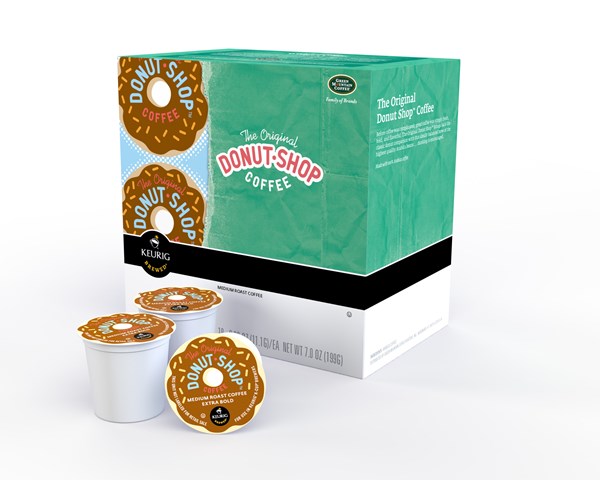TerraCycle Wants To Fix The K-Cups Recycling Problem
The company has developed a Zero Waste Box that can recycle any pre-packaged beverage capsules.

When single-serve coffee hit the market, a majority of coffee lovers embraced it right away. Finally, we could all enjoy a cup of coffee without any work. And it is very popular: Keurig Green Mountain says it sold 9.8 billion K-Cup portion packs in 2014. But, like any new trend, it now suffers from a backlash due to recycling.
The issue is that the coffee capsules cannot be recycled as a whole unit due to the structure of the cup. For instance, the popular K-Cups consist of #7 plastic, paper and an aluminum foil lid. In order for K-Cups to be recycled, the material must be separated from each other. But how many consumers do you think will take the initiative on that? Probably next to zero.
This is where recycler TerraCycle (Trenton, NJ) comes in. The company has developed a Zero Waste Box that can recycle any pre-packaged beverage capsules used in capsule-specific machines to make hot beverages. The Zero Waste Boxes come in three different sizes and can cost up to $210. Customers receive the box and then fill it with the appropriate waste streams. Once full, they can bring their box to any UPS location to ship the items back to TerraCycle using the pre-paid UPS shipping label, which is already on the box. When TerraCycle receives the box, the company safely recycles all of the collected materials.
The company launched the program about 18 months ago and has already collected 100 million capsules globally. Yes, a 100 million.
“People might doubt the recyclability of coffee capsules, but the fact of the matter is we have already collected 100 million—so it’s working,” Albe Zakes, global vice president of communications for TerraCycle, told Plastics Technology.
The collected waste is mechanically and/or manually separated into metals, organics and plastics. The plastics undergo extrusion and pelletization to be molded into new recycled plastic products such as plastic lumber and shipping pallets.
“Our goal is to eliminate the idea of waste,” Zakes said. “We understand zero waste is more of a goal to obtain, but programs like this can help take steps in that direction.”
Keurig has pledged to make a fully recyclable K-Cup by 2020 and Zakes says that the company’s hope is to bridge that gap between now and then.
Related Content
-
NPE2024 Wrap-Up: Sustainability Dominates Show Floor News
Across all process types, sustainability was a big theme at NPE2024. But there was plenty to see in automation and artificial intelligence as well.
-
How to Extrusion Blow Mold PHA/PLA Blends
You need to pay attention to the inherent characteristics of biopolymers PHA/PLA materials when setting process parameters to realize better and more consistent outcomes.
-
The Importance of Mass Balance in Chemical Recycling
Approaches to mass balance can dramatically impact calculations of recycled content.















